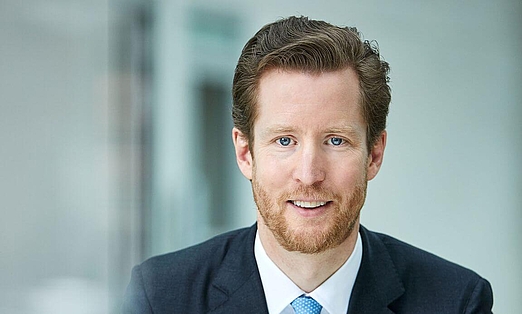“…video conferencing cannot replace the delivery of goods.”
- Interviews
Vienna Airport and cargo-partner are united by over 35 years of collaboration. The immediate proximity to cargo-partner's headquarters as well as the airport's strong position as a regional hub have allowed cargo-partner to successfully keep its business operations going even during the current crisis. We took this fruitful collaboration as an opportunity to talk to Günther Ofner about the current developments, VIE‘s expansion plans, and video conferences.
“Travel will definitely always remain a basic need for people, and video conferencing cannot replace the delivery of goods. Aviation will therefore recover over the medium to long term.”
Dr. Ofner expects a positive development over a longer period.
“Vienna International Airport can ramp up the system again at any time. ”
VIE sees itself prepared for a potential surge in traffic.
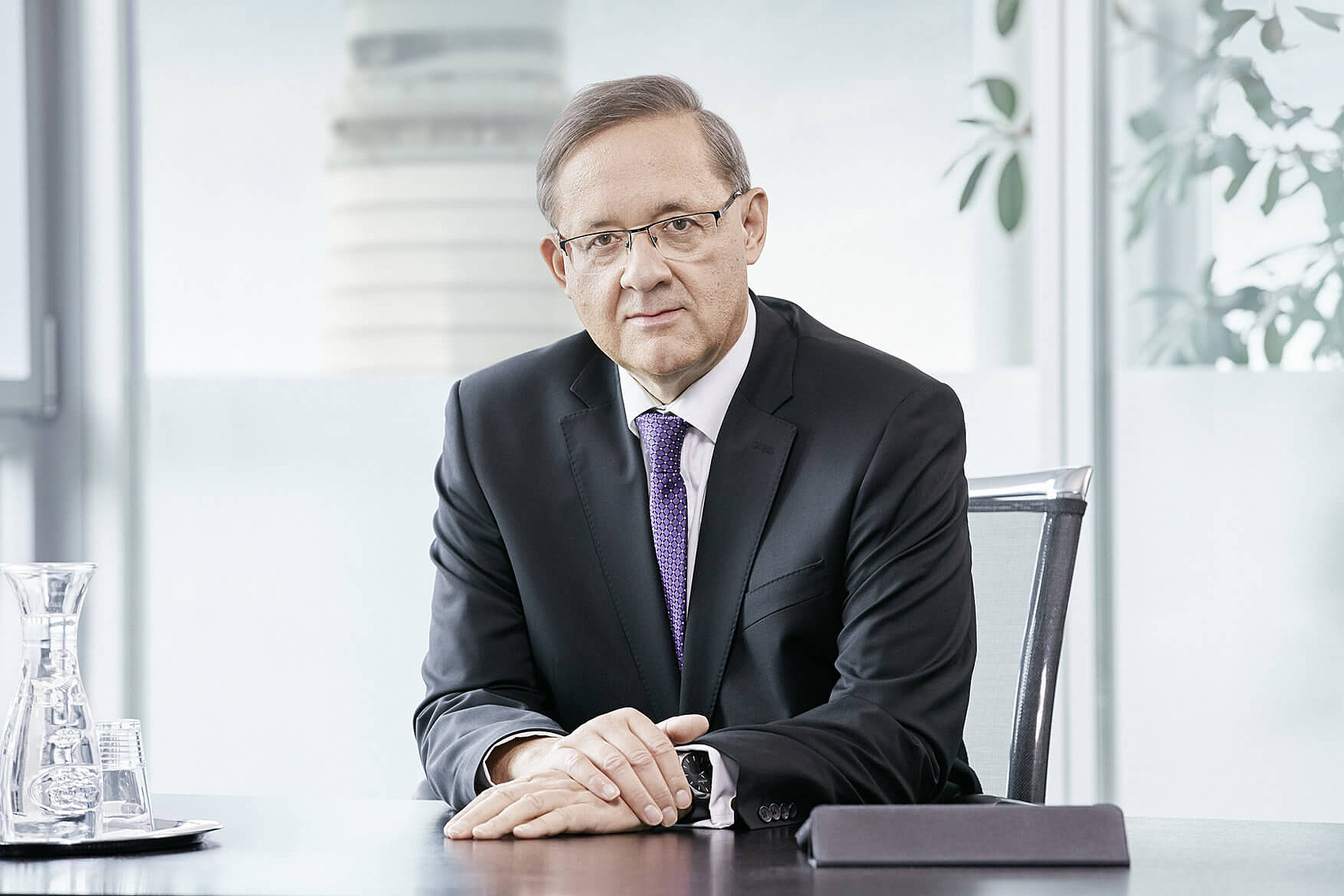
The complete collapse in passenger numbers brought with it a massive reduction in air freight transshipment volume. At the same time, freight forwarders are desperately searching for available transport capacities. Do you think that freight capacities might recover somewhat?
Günther Ofner: The Vienna Airport remains in uninterrupted operation, primarily to continue enabling cargo flights, passenger return flights and the currently very low level of regular flight operations. This means our cargo handling team and the airport infrastructure are available for cargo transshipment at all times.
Due to the elimination of many regular flights, which also carry cargo, we are now seeing declines in cargo volumes. However, we assume that this will recover over the medium term.
A number of PAX carriers recently announced that they would like to return certain routes to the schedule as “freight only” – among them Lufthansa, including Austrian. What do you think of these efforts? Would it be necessary to reorganize handling procedures, and could VIE process such “special flights” without complications?
At the moment, Austrian Airlines continues to carry out freight flights with passenger aircraft. These are being used to transport urgently needed medical equipment from Asia to Vienna, meaning that such flights are very important in the current situation. These flights are unloaded by our handling team in compliance with the greatest possible safety precautions. All employees wear face masks with eye protection and gloves.
Just recently, the Vienna Airport Group announced very good business figures and the outlook for 2020 was positive. Now everything is falling into the red, and many analysts predict a coming recession. What is your personal expectation: Will the global economy take a dive, or will there be a V-shaped curve with global goods transport making a comeback?
COVID-19 is impacting all continents and the entire global economy. The time curves do differ in some cases: In some countries, the infection curve is already flattening, while others are still approaching the apex of the crisis. For this reason, the international economy will also recover slowly.
Nevertheless, Flughafen Wien AG is well prepared. We are in a financial position to make it through this situation.
Office Park 4 was to be opened in May 2020. The goal was also to employ 25,000 people at Vienna-Schwechat over the course of the year. How do you evaluate these goals in consideration of the present situation? From the today’s perspective, are you still committed to building the 3rd runway?
Much of Office Park 4 has already been leased and will therefore definitely enter into operation soon. Thanks to its proximity to the highway and the airport, Airport City offers direct access to the economy’s most important transportation modes and will therefore remain attractive as real estate and as an operating site for companies. The third runway is not affected by the current situation since it would not materialize before 2030 anyway.
Travel will definitely always remain a basic need for people, and video conferencing cannot replace the delivery of goods. Aviation will therefore recover over the medium to long term.
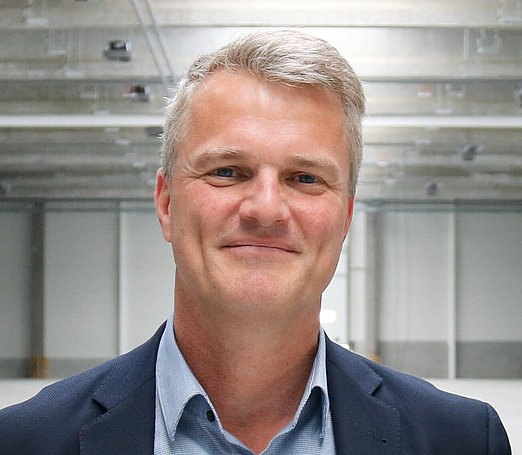
“BUD’s vision is to become the main cargo airport for the CEE region”
- Interviews
We took the completion of BUD Cargo City as an occasion to invite Budapest Airport's René Droese to talk to us about recent developments in airfreight and their further expansion plans.
More information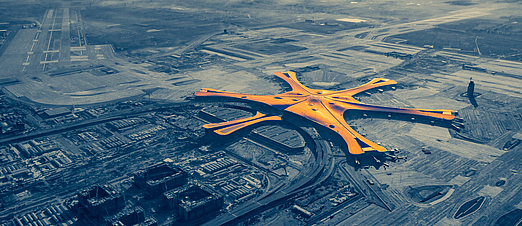
A shining starfish of unbelievable proportions
- Facts
The “Beijing New International Airport” made a truly perfect landing at its formal opening on September 26, 2019, by President Xi Jinping after only four years of construction.
More information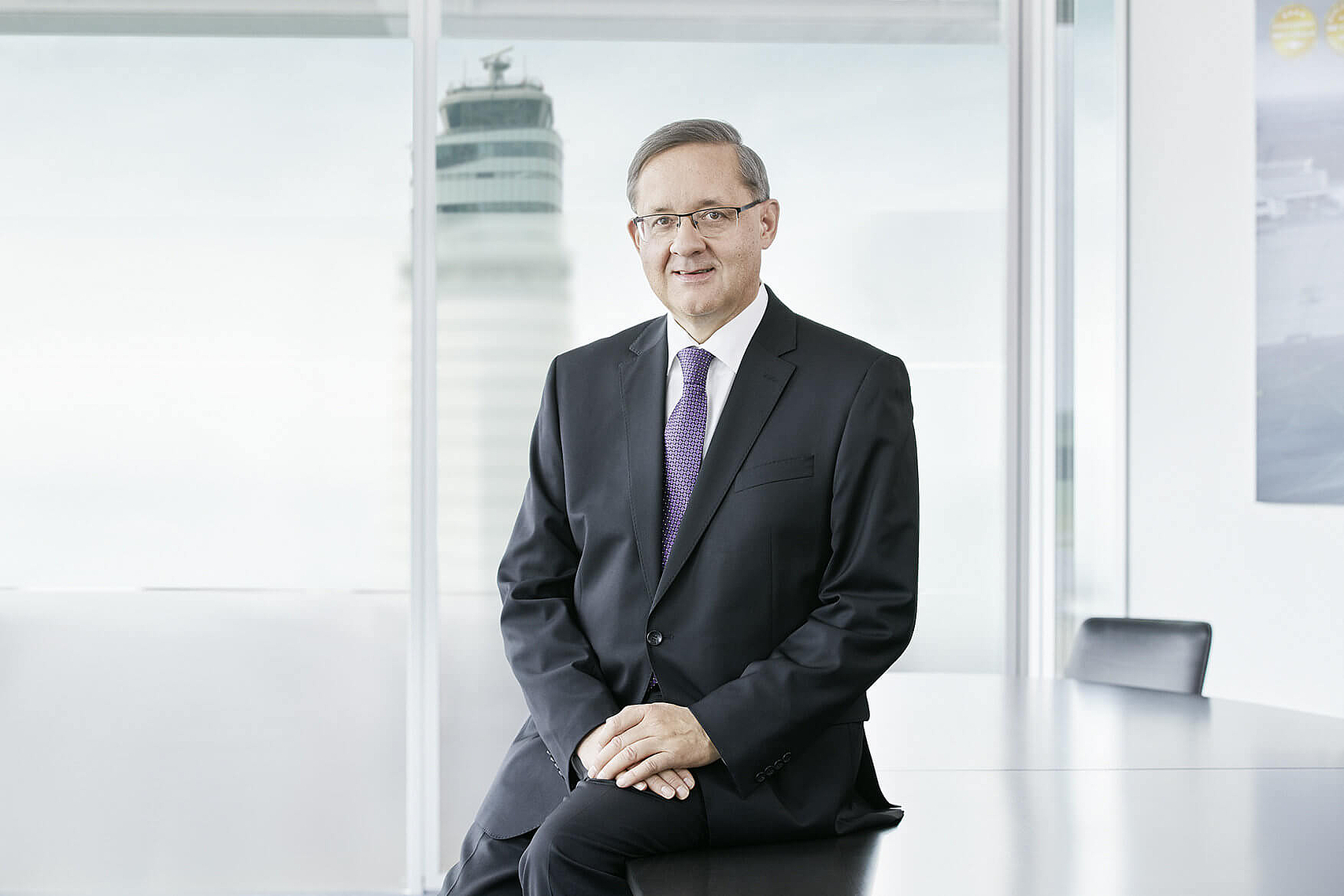
“Historically, Vienna and eastern Austria have always been a bridge between East and West. The Vienna Airport has developed on this basis into a strong air transport gateway.”
Günther Ofner underlines the imporant role of VIE Airport.
China is reporting that it is starting up its production capacities again, step by step. Assuming that the virus does not take another swipe at the production of goods, do you see Europe – and naturally also the Vienna Airport – as well equipped for a “transport backlash”?
The Vienna Airport can ramp up the system again at any time. Our team and processes are prepared. I assume that the other major air transport hubs in Europe are similarly prepared.
The Vienna Airport and cargo-partner are connected by many years of close partnership and physical proximity. How do you view the cooperation between the two companies – and how does working with a medium-sized logistics provider differ from working with the “giants” of the industry?
The partnership between cargo-partner and the Vienna Airport is exceptional. cargo-partner was one of the first companies to fully commit to a site in the airport region and serves as an example of success. With the decision to build in the immediate proximity of a major customer and the airport, cargo-partner demonstrated vision and foresight.
As an Austrian company, cargo-partner regards Vienna Schwechat as one of the most important hubs for its business activities in the CEE region. Moreover, the company recently expanded its warehousing capacities near the Vienna Airport with the iLogistics Center, further underscoring the importance of the site for the group’s global network. And cargo-partner is not the only company following this approach. How do you explain why VIE plays such a central role in the transport and logistics industry as a hub in the heart of Europe?
Historically, Vienna and eastern Austria have always been a bridge between East and West. The Vienna Airport has developed on this basis into a strong air transport gateway with short handling times, flexible and customer-oriented solutions and a direct connection to the highway system leading to Austria’s closest neighbors. We are continuously at work expanding this role. For example by offering a seamless solution for the transshipment of temperature-sensitive products without any interruption in the cold chain.
Thank you for the interview

